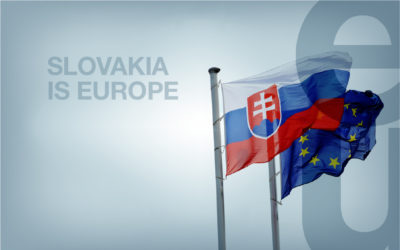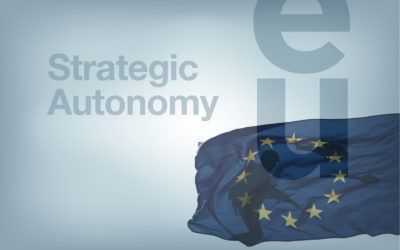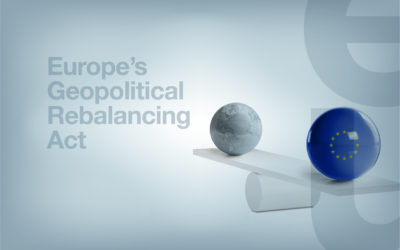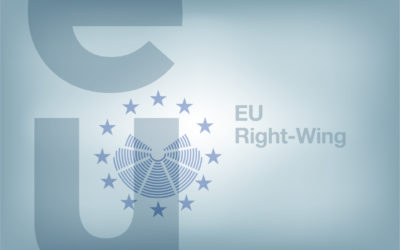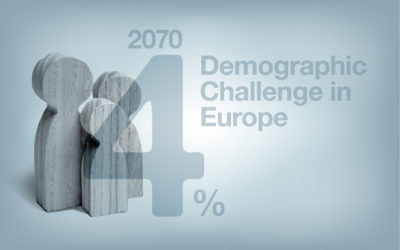COVID-19 in Europe demands a centralised European response
03 April 2020
The pandemic that has now affected billions, forcing nearly half the world’s population into some form of lockdown, is far from over. In fact, infectious disease experts warn that the majority of countries grappling with the virus have not yet reached their respective apex. For the European Union, this means that thousands more will fall ill; supplies of ventilators, masks and other personal protective equipment, as well as hospital beds, will increasingly become scarce; businesses will continue to suffer or face bankruptcy and economic output will stagnate, with a Eurozone (and global) recession all but guaranteed.
As such, this is not only the problem of any one, or a few, EU member states. It is a uniquely European problem, that only a European solution can effectively solve.
In the EU, knee-jerk reactions like the closure of internal borders, and the initial freezes on national exports of protective medical equipment and testing kits — later rectified by the Commission — run contrary to our European way of life, making them appear particularly abrasive and extraordinary.
There have also been numerous examples of member states donating medical supplies to other members who need them more urgently, with some even welcoming cross-border corona patients to their hospitals. But, as noble and heart-warming as these instances of EU solidarity are, alone, they are not enough.
The EU has been far too divided in its response, to its own detriment. A remedy to a crisis of this magnitude (455,901 cases in the EU/EEA and UK at the time of writing) must be proportional, uniquely European, centralised at EU-level, and better communicated to the general public. It must present “EU solidarity” not merely as a platitude, but as a resounding, undeniable fact.
The EU is a coalition of 27 member states that agree to work intimately with one another for benefits they could not otherwise obtain alone. If the EU wants to pass the post-stress test that will inevitably follow this pandemic, and the inescapably intertwined questions of legitimacy, it must start acting like its future depends on it. After all, that is exactly what is at stake.
There have been numerous attempts, and there will be many more temptations, to close off our open societies and revert back to mere nation states. Some measures are indeed vital to contain the spread of the virus, such as internal border closures, but the EU must take coordinated action to counter potential consequences, like threats to food security.
Although the Commission has already taken necessary action to address some of these concerns, like the implementation of “green lanes” throughout the EU, more oversight will be needed to ensure the flow of goods goes unhindered. For instance, it should also lead a coordinated effort to oversee and expedite the distribution of medical equipment from members where production is concentrated, namely the Czech Republic, France, Germany, and Poland, to members in dire need.
This is not only the problem of any one, or a few, EU member states. It is a uniquely European problem, that only a European solution can effectively solve.
The EU must also continue to pass swift, sweeping emergency measures to support the hardest-hit member states. The Commission-proposed EU Solidarity Fund is a good start, but it is only a temporary lifeline.
The next major hurdle for the EU is the negotiation of a more long-term, far-reaching, joint fiscal package to address the wider economic repercussions caused by the virus. Herein lies the most significant bottleneck for the EU’s COVID-19 response to date, one for which the von der Leyen Commission, as well as the Council, must find a way to overcome. If the already-tainted idea of ‘corona bonds’ does not receive the traction necessary to make it a viable option, then emergency crisis meetings must be held with more frequency in order to expedite alternatives, like the pan-European unemployment reinsurance scheme.
There is one more area, however, where the EU, and the Commission in particular, needs to improve: communication. Rather than highlighting instances of EU solidarity via the actions of individual member states, the EU’s communication strategy should be centralised as well, involving joint press conferences between the heads of the Commission, Council and Parliament, at least once per week. In addition to presenting the latest trends and figures, the EU should use such an occasion to better communicate the co-ordinated efforts that it is spearheading, which to date are largely flying under the radar.
Furthermore, information on the Commission’s webpage documenting the assistance provided by the EU to the member states (and among member states) should be more easily accessible, streamlined, and categorised by country.
This pandemic is a defining moment for the European Union. It has the opportunity to prove its potential and demonstrate that it can overcome a threat of such magnitude, together, by navigating the crisis as a union. Failure to respond in a unified manner could de-rail the progression of the European project for decades to come, or deliver a blow to its legitimacy from which it may never recover.
On the other hand, if the EU effectively demonstrates the benefits of a more coordinated, federal-like response, it could leave the doorway open to further integration and centralised autonomy – from finance to security – to better prepare and respond to crises of similar proportion in the future.
Before we rid ourselves of this virus in Europe, and on a global scale, things will get worse before they get better, but we are all in this together. Instances of EU solidarity, alone, will not be enough to overcome this crisis. However, if the Commission and the other Institutions step up their role as the central nerve system of the EU, facilitating a more centralised, unified, and better-communicated response to Europeans, we may even emerge as a stronger Union.
After all, the coronavirus knows no boundaries, why should our response?
ENJOYING THIS CONTENT?




